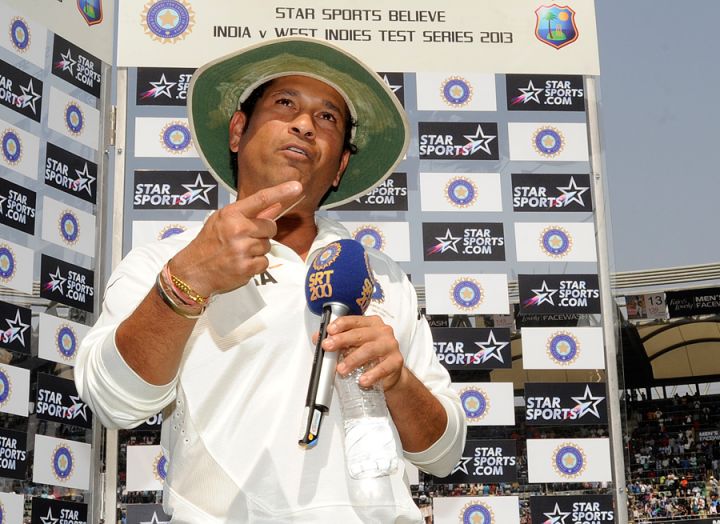Sportsmen don't do it alone
Like with most achievers, their work is collaborative in a sense, borrowing from the efforts of others

In his memorable farewell speech last November at Wankhede Stadium, Sachin Tendulkar did not regale us with tales of his greatest batting feats, or describe for us his endless batting sessions. He did not tell us who the greatest bowler he faced was, or the batsman he most admired. He did not enlighten us with the secrets of his longevity in international cricket. He declined to name his favourite grounds or innings or model of bat or batting glove. He did not wax nostalgic about his days in the dressing rooms and share a story or two about the camaraderie he experienced within their confines.
He did, however, rattle off a long list of thank-yous to all those folks - family, friends, fellow players, cricket administrators, coaches, physiotherapists - who taught him cricketing skills, propped him up, supported him, healed him, gave him time to play, and in more ways than can be enumerated, made his career possible.
The great American discus-thrower Al Oerter - who won Olympic gold medals in the 1956, 1960, 1964, and 1968 Games, thus becoming the first athlete to win the same Olympic event four times in a row - in his acceptance speech for his induction into the Track and Field Hall of Fame, said that every coach and training partner he had ever had should be on the stage accepting the award with him.
Oerter and Tendulkar will be the first to admit they were not self-made men in the literal, and often abused, sense of the term. What they became was the product of the labour of the many who helped them. Indeed, any successful sportsperson finds his path to the top aided by the effort of others; sometimes their equipment is bought for them, sometimes they are taught by parents, sometimes by coaches; they are dropped off at practice; they are healed when they are sick by doctors; the list goes on. They don't have their work done for them, but they wouldn't be able to do it in the first place if they weren't aided in the right ways.
This support need not be the type we associate with "backroom staff" alone. Sportsmen grow up finding inspiration in the deeds of distant superstars; their lonely hours of practice are made bearable by the aspirational dreams evoked by others who were once like them. They hone their skills against others and so find that even those who oppose them on the field help them grow as people and exponents of their arts. The cheering from the galleries assures them their talents are worthy of admiration and applause and thus worth further development.
The lessons here are broader and apply to all of us. No matter how independent you imagine yourself to be, you only need to look a little closer to find the networks, the histories that make your work, your achievements, possible. As but a trivial example: I'm writing this post on a word processor written by dozens of programmers, and will email it to the ESPNcricinfo editorial staff using an email client written by someone else; it will travel over networks designed by… you get the picture. The crack developer writes his programs in a programming language designed by someone else, using computers manufactured by distant workers; the artist paints on canvas manufactured by someone else, using paints… you get the picture again. Our labours are held aloft by the efforts of others; ours in turn make those of others possible. These are almost commonplace observations and yet they are easily forgotten in our rush to proclaim ourselves unique masters of our destiny.
In their speeches Oerter and Tendulkar were not just being modest; they were being honest.
Samir Chopra lives in Brooklyn and teaches Philosophy at the City University of New York. He tweets here
Read in App
Elevate your reading experience on ESPNcricinfo App.